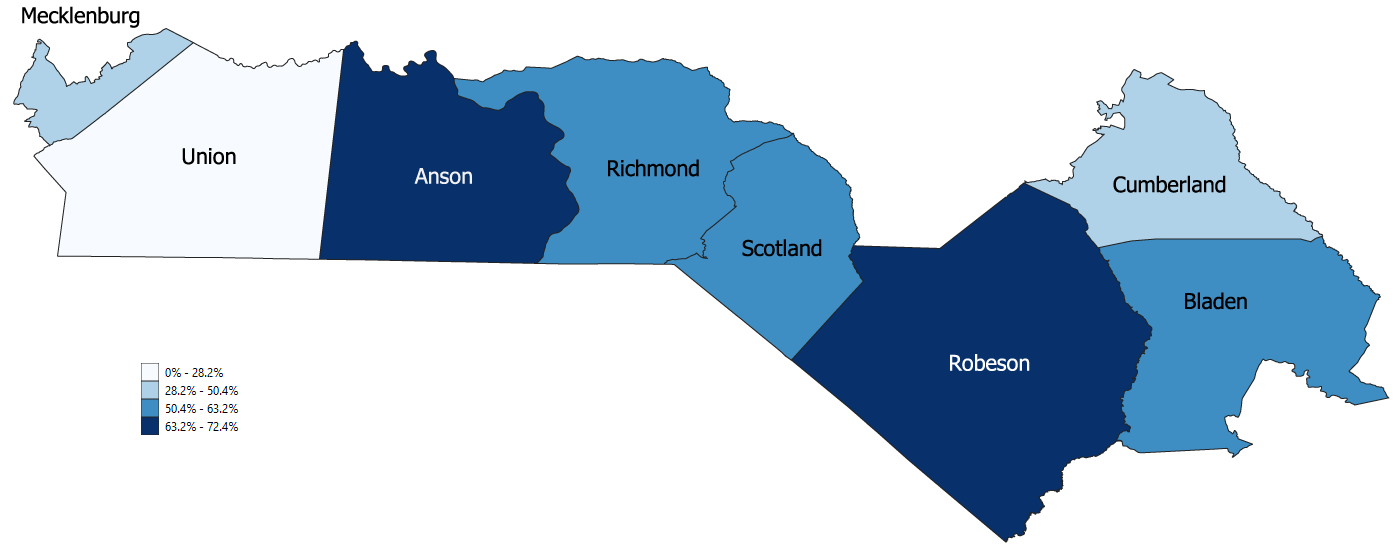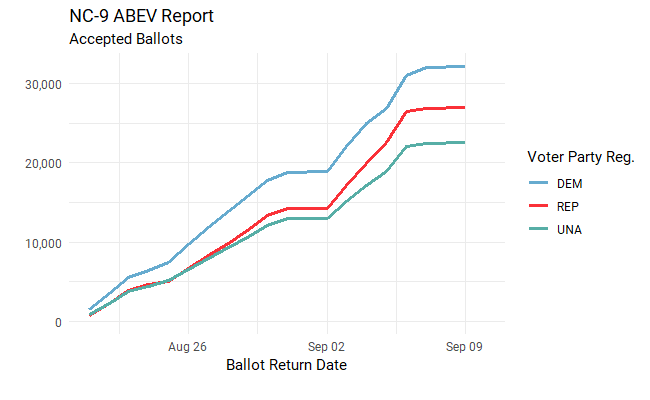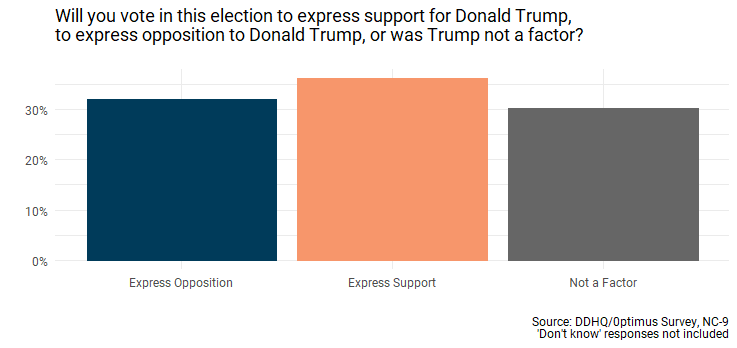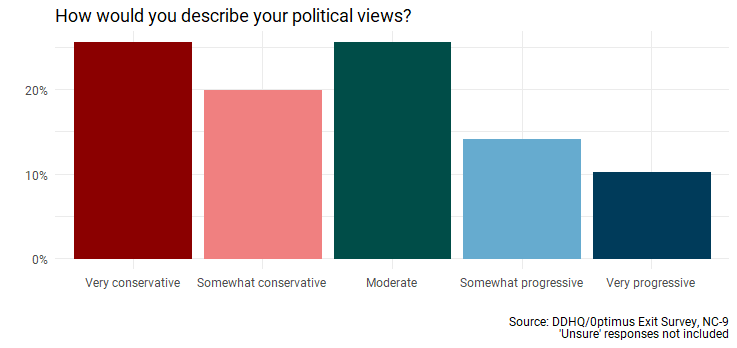NC-9: Exit Poll A Special Look
The polls are closed in NC-9’s congressional special election. Who voted and what political issues do these voters care about?
For the last five days, DDHQ has paired up with 0ptimus to take a closer look at this race — we’re trying out some things as we roll into 2020 so we can provide our readers more election nerdery. Although President Trump won the district by 12 percentage points nearly three years ago, it has since been the center of political attention after the North Carolina State Election Board failed to certify the district’s 2018 midterm result due to allegations of fraud. With millions of dollars poured into the district from both sides of the partisan spectrum, we thought this would be a good opportunity to ask voters what matters to them as they headed to the polls for “take two.”
Voters in NC-9: Who are they?

Voters in this special election aren’t very different from those in a standard election in the district. Our survey finds an overwhelming majority of voters are 55 years of age or older. We also find that females make up most of the electorate and Democrats make up a plurality (compared to Republican and unaffiliated voters). Among those who reported voting early, Democrats had a +10 advantage while, among those who report they will “definitely” vote on Election Day, Republicans had a +11 advantage.
Absentee and early voting (ABEV) has a strong history in this recently-drawn district: a majority of voters cast their ballots early or by absentee in the only two congressional general elections held in the currently configured district. The map above shows the percentage of accepted ABEV ballots for Democrats by County as of Election Day morning. While Democrats have gotten out the ABEV vote in most counties, more Republican ballots were accepted in the two largest counties – Mecklenburg and Union. Nevertheless, Democratic ABEV ballots outnumbered those from Republicans and unaffiliated voters as shown below.

The Trump Factor

Both the President and Vice President came to North Carolina to stump for Republican Dan Bishop on the eve of the election and our data suggests the visit was a good idea by the Bishop campaign. If the 2020 election were today, our survey shows Trump beating a generic Democratic challenger by 7 points. Further, NC-9 voters are in alignment with national polls that fail to demonstrate public support for impeaching the president.
However, despite Trump’s slight edge in the district, it is unclear whether this will help or hurt the contestants in Tuesday’s race. To explore this question, we asked voters whether their vote in the NC-9 special election was influenced by their support or opposition to President Trump. Although a slight plurality of voters claimed their vote today was to express support for the Donald Trump, our sample was nearly evenly split between three camps: voting to support Trump, voting to oppose Trump, and Trump not being in a factor in their vote. While popular media will certainly cast tonight’s results as either good or bad for the president, our survey finds nearly one-third of voters were not even factoring in President Trump when casting their ballot.
Shades of Red and Blue in a Purple State

As one might expect from an R+8 district, North Carolina-9 leans conservative. Nearly 46% of the district identify as “conservative” compared to 24% who identify as “progressive.” There is also a considerable asymmetry in ideological intensity, with a majority of conservatives saying they are “very conservative” while a most progressives identify as being only “somewhat progressive”
The conservative tilt of the district is also evident across individual policy views. For example, support for Medicare for All and single-payer health care plans is at net -22%.
However, on other issues, this suburban district leans left. When it comes to assault-style firearms, most voters in the district support a ban. On immigration, the district prefers the U.S. offer current illegal immigrants legal status compared to other alternatives.
***
While election night is only beginning, our survey provides data – not speculation – into what voters were thinking in the final moments of this special election.
Survey Methodology: From September 6th to 10th, DDHQ/0ptimus surveyed 847 registered voters in North Carolina’s 9th congressional district using registration-based sampling (RBS). The sampling frame included all voters in NC-9 with sampling conducted via probability proportional to size (PPS) using 2019 special election turnout scores. Turnout scores were estimated using voters’ vote histories, demographic information, ABEV propensity, and other relevant features by 0ptimus. The sample was contacted via interactive voice response (IVR) (57%) and peer-to-peer text messaging (43%). The margin of error varies across question due to item nonresponse and response variance but is generally 3.4% for the full sample. Topline reports can be found on the 0ptimus GitHub page (linked here).